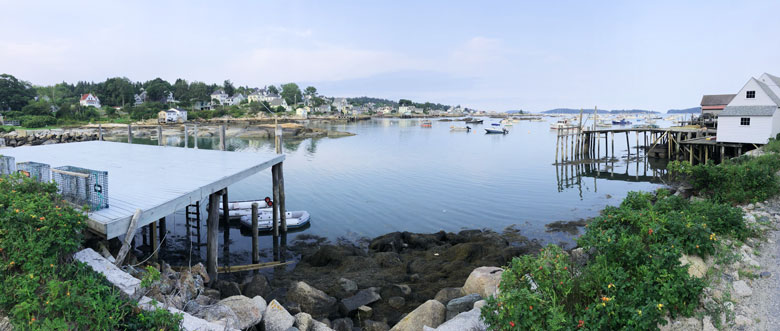U.S. Sens. Angus King, I-Maine, and Bill Cassidy, R-La. are introducing legislation to offer a disaster mitigation tax credit to working waterfronts located on coasts and navigable waterways. The Working Waterfronts Disaster Mitigation Tax Credit Act would provide working waterfronts with a 30% tax credit on up to $1 million in mitigation expenses, adjusted for inflation annually.
The proposal comes on the heels of 2023 winter storms that caused more than $3 billion in damage in Maine.
King has been at the forefront of supporting working waterfronts as they face the effects of sea level rise and storm damage. Last winter, he joined the Maine delegation in writing to the Federal Emergency Management Agency (FEMA) in support of Gov. Janet Mills’ requests that they treat the multiple devastating winter storms as a disaster event for purposes of damage assessment and federal reimbursement for cleanup.
This new legislation would ensure that working waterfronta have the financial resources to shore up their infrastructure and prevent the oftentimes devastating consequences of natural disasters.
“Maine’s coastal communities are changing,” King noted. “From a warming climate to an evolving economy, the Gulf of Maine faces both historic opportunities and challenges that will define our state’s success for generations.
“The Working Waterfronts Disaster Mitigation Tax Credit Act would provide working waterfronts up and down the coast of Maine with the necessary financial resources to adapt to the rapidly shifting dynamics of natural disasters affecting economic and tourism operations,” he said.
Cassidy said preparation was key.
“Let’s empower coastal businesses to invest in flood and disaster prevention before a storm hits,” he said. “Doing so protects our way of life, fishing and coastal industries, and the livelihoods of Louisiana families.”
Working waterfronts are comprised of physical property (including support structures over water and other facilities) that provide access to navigable waters to persons engaged in commercial fishing, recreational fishing and boating businesses, boatbuilding, aquaculture, or other water-dependent business used for the purpose of supporting a water-dependent business.
The tax credit would be available to any small business that operates a working waterfront. For example, a coastal business owner can use this tax credit to invest in business-related infrastructure to protect property so that it does not suffer damage from rising water and storms.
“Island Institute is grateful to Sen. King for introducing this visionary piece of legislation,” said Kim Hamilton, the organization’s president. “Maine’s working waterfront businesses will need all the tools they can get; this tax credit will be an important resource for small business owners, many of whom were affected by catastrophic January storms. This bill assures that small working waterfront businesses can take steps today that will help them to prepare for future impacts of climate change.”
King is a longtime supporter of working waterfronts and small businesses. He previously introduced the bipartisan Providing Resources for Emergency Preparedness and Resilient Enterprises (PREPARE) Act to reauthorize the Small Business Administration’s (SBA) Pre-Disaster Mitigation Pilot Program, which would give small businesses the opportunity to take out low-interest loans for the purpose of proactively implementing mitigation measures that protect their property from future disaster-related damage. Most recently, he was named a 2024 Hero of Main Street for his support of small businesses across Maine.





